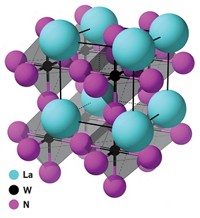Advertisement
Grab your lab coat. Let's get started
Welcome!
Welcome!
Create an account below to get 6 C&EN articles per month, receive newsletters and more - all free.
It seems this is your first time logging in online. Please enter the following information to continue.
As an ACS member you automatically get access to this site. All we need is few more details to create your reading experience.
Not you? Sign in with a different account.
Not you? Sign in with a different account.
ERROR 1
ERROR 1
ERROR 2
ERROR 2
ERROR 2
ERROR 2
ERROR 2
Password and Confirm password must match.
If you have an ACS member number, please enter it here so we can link this account to your membership. (optional)
ERROR 2
ACS values your privacy. By submitting your information, you are gaining access to C&EN and subscribing to our weekly newsletter. We use the information you provide to make your reading experience better, and we will never sell your data to third party members.
Materials
Custom Doped Thermoelectrics
Material with tailored electronic structure exhibits record-setting thermoelectric effect
by Mitch Jacoby
May 9, 2011
| A version of this story appeared in
Volume 89, Issue 19
Thermoelectric materials with exceptional energy conversion properties can be prepared by way of a chemical doping procedure designed to customize the starting materials’ electronic structure, according to materials scientists at California Institute of Technology (Nature, DOI: 10.1038/nature09996). The work may lead to technology for converting waste heat—for example in automobile exhaust—to electricity with high enough efficiency to make such systems suitable for widespread application. Thermoelectric materials are endowed with a curious property that enables them to convert heat to electricity when a temperature difference develops across such a material. Similarly, an applied potential can heat or cool these materials. How well they facilitate this energy conversion is indicated by the so-called thermoelectric figure of merit, zT, which for applications ideally should be above 1.5. Today’s thermoelectric products feature materials based on PbTe and have zT values below 1.0. Most of the recent work aimed at boosting that value focuses on tailoring the materials’ nanostructures. Caltech’s Yanzhong Pei, G. Jeffrey Snyder, and coworkers chose instead to customize PbTe’s electronic structure by selectively doping it with sodium and selenium. That strategy led to Pb0.98Na0.02Te1– xSex samples with unprecedented zT values as high as 1.8, they report.



Join the conversation
Contact the reporter
Submit a Letter to the Editor for publication
Engage with us on Twitter